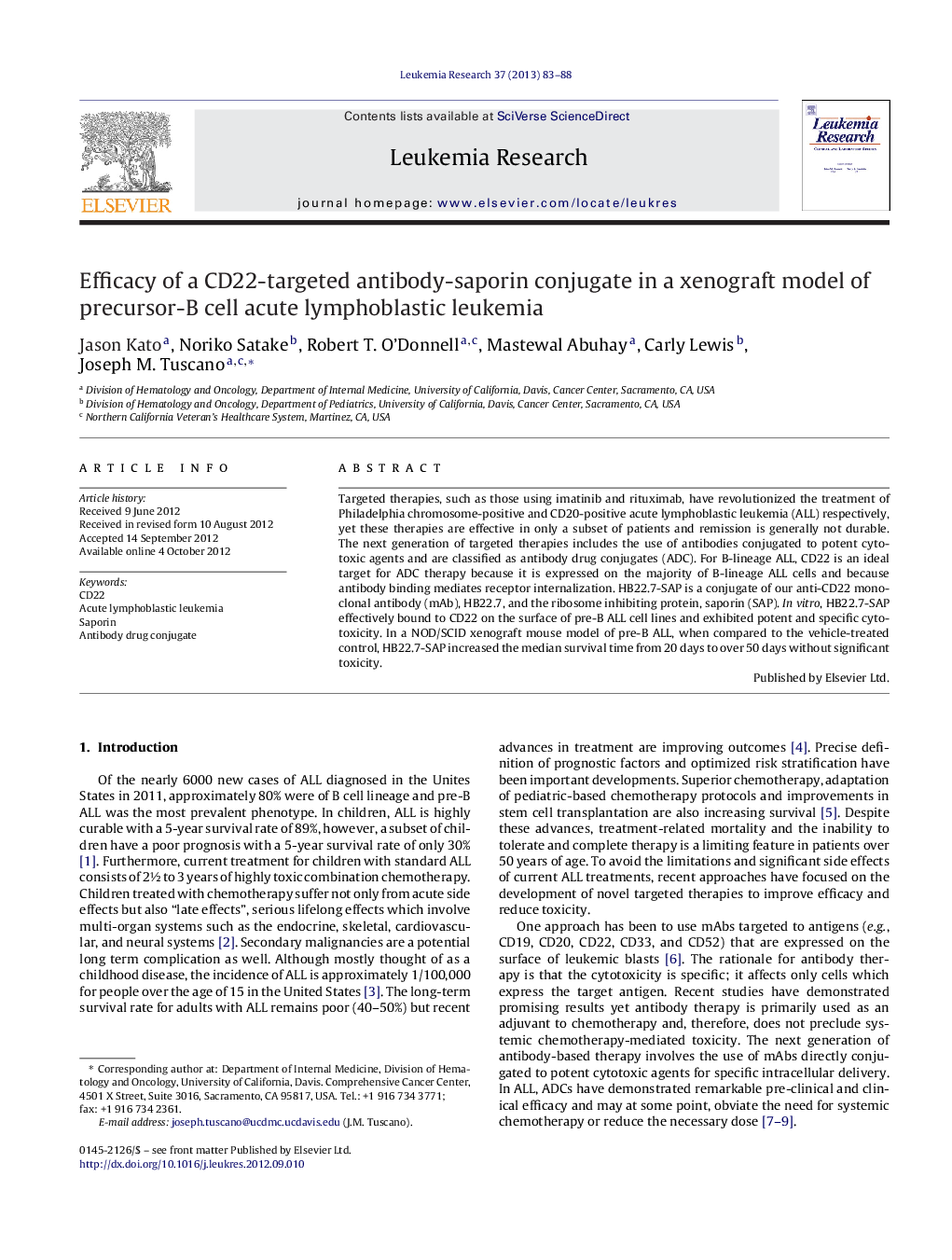| Article ID | Journal | Published Year | Pages | File Type |
|---|---|---|---|---|
| 2136967 | Leukemia Research | 2013 | 6 Pages |
Targeted therapies, such as those using imatinib and rituximab, have revolutionized the treatment of Philadelphia chromosome-positive and CD20-positive acute lymphoblastic leukemia (ALL) respectively, yet these therapies are effective in only a subset of patients and remission is generally not durable. The next generation of targeted therapies includes the use of antibodies conjugated to potent cytotoxic agents and are classified as antibody drug conjugates (ADC). For B-lineage ALL, CD22 is an ideal target for ADC therapy because it is expressed on the majority of B-lineage ALL cells and because antibody binding mediates receptor internalization. HB22.7-SAP is a conjugate of our anti-CD22 monoclonal antibody (mAb), HB22.7, and the ribosome inhibiting protein, saporin (SAP). In vitro, HB22.7-SAP effectively bound to CD22 on the surface of pre-B ALL cell lines and exhibited potent and specific cytotoxicity. In a NOD/SCID xenograft mouse model of pre-B ALL, when compared to the vehicle-treated control, HB22.7-SAP increased the median survival time from 20 days to over 50 days without significant toxicity.
